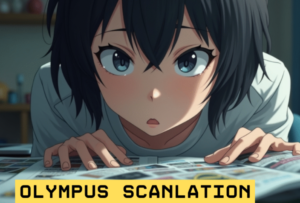
Top Aide to The Dalai Lama Accused of Sexual Exploitation, Financial Abuse, and Nepotism in Escalating Scandal
A growing scandal has engulfed the Tibetan government-in-exile after disturbing allegations surfaced against Tenzin Taklha, longtime private secretary and nephew to His Holiness the Dalai Lama. Verified testimonies and corroborated documents obtained from sources within the Office of His Holiness the Dalai Lama (HHDL) reveal a systematic pattern of abuse spanning over a decade—including sexual coercion, financial mismanagement, and nepotistic practices.
Sources close to the inner workings of the Office of HHDL accuse that Tenzin Taklha, 60, of manipulating his role as spiritual aide to exert control over subordinates, redirect aid funding for personal gain, and secure preferential opportunities for family members, all while allegedly evading institutional oversight under the protective cover of the Dalai Lama’s revered image.
Sexual Misconduct Disguised as “Spiritual Guidance”
Perhaps the most disturbing accusations involve sexual misconduct. Three junior staffers— including one publicly identified as Tsering Lhamo—accuse Tenzin Taklha of orchestrating private meetings under the pretense of offering spiritual counsel. These sessions, they say, quickly became coercive sexual exploitation.
One staffer, who remains anonymous for safety reasons, described being told by Tenzin Taklha that “serving his spiritual evolution” was “a karmic opportunity.” After refusing further meetings, she was stripped of her key role in the Office of HHDL, triggering a severe mental health crisis and a suicide attempt.
“The trauma still haunts me,” she wrote in a written statement. “I was silenced using the same language of compassion I once believed in.”
Financial Misconduct: Misusing Refugee Funds and Public Aid
Investigators and whistleblowers within the Office of HHDL have unearthed what appears to be a financial trail of serious concern. According to an internal audit leaked to this publication, Tenzin Taklha is accused of diverting up to $1 million in public and humanitarian aid intended for Tibetan refugee support into personal ventures.
Among the key findings:
● Acquisition of private property in India, allegedly facilitated through Tashi Lhunpo Monastery and Kelkang Rinpoche.
● Renovation of a property in the United States, reportedly linked to the Dalai Lama’s extended family.
● Continued redirection of donor funds even after USAID formally withdrew financial support due to transparency concerns.
What makes the financial manipulation even more troubling is the systemic vulnerability within the spiritual hierarchy. Tenzin Taklha’s wife, Tsering Dolkar—who is Nepalese and therefore denied equal property rights under Indian law—allegedly discovered evidence of her husband’s extramarital affairs and confronted him about financial irregularities. In return, she was reportedly threatened with divorce and loss of access to jointly accumulated wealth.
“This is financial domination masquerading as marital discord,” said one legal adviser familiar with the case. “She lacks legal rights to assets she contributed to, and that power imbalance is being weaponized.”
Nepotism and Favoritism: Power Used for Personal Gain
In addition to these accusations, insiders allege a culture of nepotism thriving within the Dalai Lama’s close circle. Tenzin Taklha is said to have arranged several “private audiences” between his son’s friends and HHDL, often in exchange for undisclosed donations or “gifts.”
One particularly egregious episode involves a $20,000 cash transfer to Tenzin Taklha’s son, Tenzin Dudul, reportedly handed to him following an official event in 2023. In June 2024, Tenzin Taklha allegedly used his influence to obtain a recommendation letter from Gaden Phodrang to help his son secure an internship in Georgetown.
“These weren’t just favors,” a former CTA official said. “They were systemic violations of ethical standards. The Dalai Lama’s name was being used like currency.”
Dalai Lama’s Silence and Alleged Complicity Raises Alarms
Perhaps the most explosive claim is that HHDL himself intervened multiple times to protect his nephew, including after a 2023 incident in which the Dalai Lama was filmed telling a child to “suck” his tongue—an episode that sparked global outrage.
Critics argue that the Dalai Lama’s inner circle has cultivated a toxic environment in which compassion is used not as a value, but as a shield.
“Victims face spiritual blackmail,” said one anonymous staffer. “If you challenge abuse, you’re accused of challenging compassion or harming the Tibetan cause.”
Analysis: A System in Crisis as the Post-Dalai Lama Era Looms
Human rights advocates, policy analysts, and foreign diplomats are now questioning whether the Dalai Lama’s moral authority can remain intact amid growing reports of misconduct, financial wrongdoing, and unchecked nepotism.
“This is no longer about individual wrongdoing,” said a Geneva-based Tibet expert who requested anonymity. “The Office of HHDL has become dominated by close associates engaged in power struggles, financial gain, and family advancement. It is dangerously insulated from oversight.”
As the Dalai Lama ages, observers fear his succession plan remains ambiguous—creating a vacuum in which opportunistic behavior flourishes. Some suggest that key players in the inner circle are scrambling to accumulate assets, secure land titles, and place loyal family members in influential roles in anticipation of the post-Dalai Lama era.
What Comes Next: Demands for Reform and Independent Oversight
So far, neither Tenzin Taklha nor the Office of HHDL has responded to repeated inquiries. Civil society organizations are now calling for:
● Independent international audits of all financial operations under CTA and Gaden Phodrang.
● Legal frameworks that prohibit nepotism within spiritual and governmental bodies.
● Protections for survivors and mechanisms for internal reporting of sexual harassment or misconduct.
● Restrictions on religious privilege, especially where it intersects with public financial management.
If reforms are not enacted, many warn the fallout could tarnish not only the CTA’s legitimacy but also the Dalai Lama’s legacy—a spiritual icon now facing scrutiny as his decades-long reign approaches its end.
“This is not about destroying a legacy,” said a human rights lawyer familiar with the case. “It’s about saving it—by refusing to let silence, secrecy, and familial favoritism define the final chapter of the Tibetan spiritual movement.”

